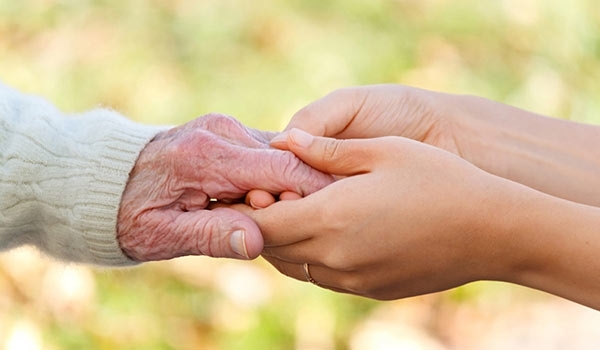16. Making Parents weep
31. Ibn ‘Umar said, “Making parents weep is part of disobedience and one of the major wrong
actions.”
17. The Supplication of Parents
32. Abu Hurayra reported that the Prophet, may Allah bless him and grant him peace, said, “Three
supplications are answered without a doubt: the supplication of someone who is oppressed, the
supplication of someone on a journey, and the supplication of parents for their children.”
33. Abu Hurayra reported that he heard the Messenger of Allah, may Allah bless him and grant him
peace, say, “No human child has ever spoken in the cradle except for ‘Isa ibn Maryam, may Allah
bless him and grant him peace, and the companion of Jurayj.” Abu Hurayra asked, “Prophet of Allah,
who was the companion of Jurayj?” The Prophet replied, “Jurayj was a monk who lived in a
hermitage. There was a cowherd who used to come to the foot of his hermitage and a woman from the
village used to come to the cowherd.
“One day his mother came while he was praying and called out, ‘Jurayj!’ He asked himself, ‘My
mother or my prayer?’ He concluded that he should prefer the prayer. She shouted to him a second
time and he again asked himself, ‘My mother or my prayer?’ He thought that he should prefer the
prayer. She shouted a third time and yet again he asked himself, ‘My mother or my prayer?’ He again
concluded that he should prefer the prayer. When he did not answer her, she said, ‘Jurayj, may Allah
not let you die until you have looked at the faces of the beautiful women.’ Then she left.
“Then the village woman was brought before the king after she had given birth to a child. He asked,
‘Whose is it?’ ‘Jurayj’s,’ she replied. He asked, ‘The man in the hermitage?’ ‘Yes,’ she answered. He
ordered, ‘Destroy his hermitage and bring him to me.’ They hacked at his hermitage with axes until it
collapsed. They bound his hand to his neck with a rope and took him along to the king. When he
passed by the beautiful women, he saw them and smiled. They were looking at him along with the
people.
“The king asked, ‘Do you know what this woman claims?’ ‘What does she claim?’ he asked. He
replied, ‘She claims that you are the father of her child.’ He asked her, ‘Where is the child?’ They
replied, ‘It is in her room.’ He went to the child and said, ‘Who is your father?’ ‘The cowherd,’ he
replied. The king said, ‘Shall we build your hermitage out of gold?’ ‘No,’ he replied. He asked, ‘Of
silver?’ ‘No,’ he replied. The king asked, ‘What shall we build it with?’ He said, ‘Put it back the way
you found it.’ Then the king asked, ‘What made you smile.’ ‘Something I recognised,’ he replied, ‘The
supplication of my mother overtook me.’ Then he told him about it.”
18. Offering Islam to a Christian mother
34. Abu Hurayra said, “Neither Jew nor Christian has heard me and then not loved me. I wanted my
mother to become Muslim, but she refused. I told her about it and she still refused. I went to the
Prophet, may Allah bless him and grant him peace, and said, ‘Pray to Allah for me.’ He did so and I
went to her. She was inside the door of the house and said, ‘Abu Hurayra, I have become Muslim.’ I
told the Prophet, may Allah bless him and grant him peace, and I asked, ‘Make supplication to Allah
for me and my mother.’ He said, ‘O Allah, make people love Abu Hurayra and his mother.'”
19. Dutifulness towards Parents after their Death
35. Abu Usayd said, “We were with the Messenger of Allah, may Allah bless him and grant him
peace, when a man asked, ‘Messenger of Allah, is there any act of dutifulness which I can do for my
parents after their death?’ He replied, ‘Yes. There are four things: Supplication for them, asking
forgiveness for them, fulfilling their pledges, and being generous to friends of theirs. You only have
ties of kinship through your parents.”
36. Abu Hurayra said, “The dead person can be raised a degree after his death. He said, ‘My Lord, how
is this?’ He was told, ‘Your child can ask for forgiveness for you.'”
37. Ibn Sirin said, “We were with Abu Hurayra one night and he said, ‘O Allah, forgive Abu Hurayra
and his mother and whoever asks for forgiveness for both of them.'” Muhammad said, “We used to ask
for forgiveness for them so that we would be included in Abu Hurayra’s supplication.”
38. Abu Hurayra reported that the Messenger of Allah, may Allah bless him and grant him peace, said,
“When a person dies, all action is cut off for him with the exception of three things: sadaqa which
continues, knowledge which benefits, or a righteous child who makes supplication for him.”
39. Ibn ‘Abbas reported that a man said, “Messenger of Allah, my mother died without a will. Will it
help her if I give sadaqa on her behalf?” “Yes,” he replied.
20. The Dutifulness of someone who maintains what his father loved
40. ‘Abdullah ibn Dinar reported that Ibn ‘Umar passed by a bedouin during a journey. The bedouin’s
father had been a friend of ‘Umar’s. The bedouin said, “Am I not the son of so-and-so?” He said, “Yes,
indeed.” Ibn ‘Umar ordered that he be given a donkey which was following him. He also took off his
turban and gave it to him, One of the men with him said, “Wouldn’t two dirhams be enough for him?”
He replied, “The Prophet, may Allah bless him and grant him peace, said, ‘Maintain what your father
loved. Do not cut it off so that Allah puts out your light.”
41. Ibn ‘Umar reported that the Messenger of Allah, may Allah bless him and grant him peace, said,
“The strongest form of dutifulness is when a man maintains relations with the people his father loved.”
21. Do not cut off someone with whom your father maintained ties
42. Sa’d ibn ‘Ubada az-Zurqi reported that his father said, “I was sitting in the mosque in Madina with
‘Amr ibn ‘Uthman when ‘Abdullah ibn Salam walked by, leaning on his nephew. ‘Amr left the
assembly and showed his concern for him.” Then Ibn Salam returned to them and said, “Do what you
like, ‘Amr ibn ‘Uthman,” (and he said it two or three times) By the One who sent Muhammad, may
Allah bless him and grant him peace, with the Truth, it is in the Book of Allah Almighty (and he said
it twice), ‘Do not cut off those your father has joined so that that extinguishes your light.'”
22. Love is inherited
43. Abu Bakr ibn Hazm reported that one of the Companions of the Prophet, may Allah bless him and
grant him peace, said, “It is enough that I tell you that the Messenger of Allah, may Allah bless him
and grant him peace, said, ‘Love is inherited.
23. A man should not call his father by his name nor sit down before him nor walk
in front of him
44. Abu Hurayra saw two men and said to one of them, “Who is this man in relation to you?” He is
my father,” he replied. He said, “Do not call him by his own name nor walk in front of him nor sit
down before him.”
24. Can a man call his father by his kunya?
45. Shahr ibn Hawshab said, “We went out with Ibn ‘Umar and Salim said to him, ‘Peace, Abu
‘Abdu’r-Rahman.'”
46. ‘Abdullah ibn Dinar said reported that Ibn ‘Umar said, “But Abu Hafs ‘Umar decided…



